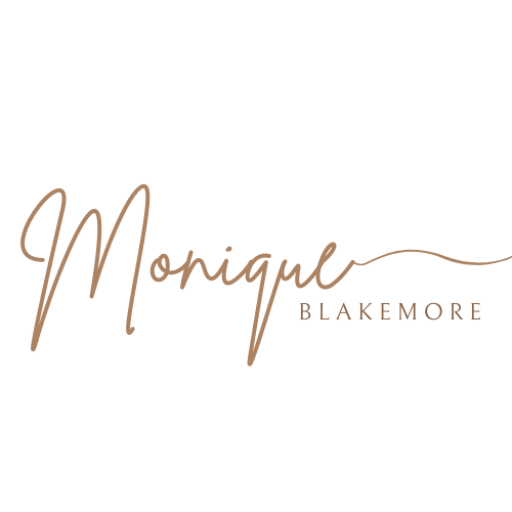One year ago today, I was only a few weeks into being a woman living alone, with her adult children. I had just experienced victimisation by two men within six weeks of each other and was navigating the police processes for both. Everything felt heavy, too loud, too complicated, too full of feelings I couldn’t even name.
And then I met Z.
Early on, I told him, “I just can’t be responsible for another person’s feelings right now.” He knew a little of what had happened, but I’d learned that my story was a lot for anyone to hold. So I kept it mostly to myself and within my small and safe professional team of support.
One day, after a marathon police interview, I came away overflowing with feelings I couldn’t even name. I had held it all together and leaving the police station experienced a panic attack. Later, when I was with Z, he noticed. He tapped his chest, just above his heart, and gestured for me to rest my head there. Then, gently, he placed his hands around my head and gave this grounding, deep pressure of the kind that quiets everything inside you. My brain became calm mush.
I apologised, of course, as I often did back then.
And he said, “Why? I’m glad I know what energy you need from me right now.”
Holding Space and Feeling Safe
For a long time after our romantic connection ended, Z remained a steady presence. A guide. A friend. Someone who modelled calm and care when things got tense.
Learning that relationship tension points could still be safe both emotionally and physically was a powerful lesson. When we disagreed, he met my old learnt behaviours with calm and kindness and we spoke honestly, listened deeply to each other’s perspectives, and worked toward understanding. How we managed those moments became one of the most important lessons I’ve learned about connection and resolving tension.
He once said I triggered his “rescuer” mode and I think that was true. I often felt it and, in my own way bucked up against it. I didn’t want to be rescued. I wanted someone who could meet me where I was at, not where they wanted to lead me.
Confusion, Growth, and Mutual Fault
Looking back, I think I found that relationship quite confusing. There was care, connection, and deep understanding, but also uncertainty. Honestly, I probably shouldn’t have been being anyone at that time. I had not yet begun to heal and had not found my own independent footing in life.
Eventually, our connection changed. There were two incidents: one where I felt my trust in him was lost, and another where he strongly disagreed with a big decision I made that he believed went against my best interests. He was right, retrospectively.
He wasn’t perfect and there was fault on both sides. And I think I’m still learning. But I take a lot of valuable lessons from Z into new connections: what safety feels like, what genuine caring looks like, and how it’s possible to hold space for someone even when emotions are running high. Those lessons are quietly transformative, shaping how I show up for myself and for others now.
Writing Despite a Promise
I should acknowledge something important: I made a promise to Z not to write about him. Choosing to write this now feels like breaking that promise. It is breaking a promise. But this is my story of my healing and my learning. I’ve taken care to ensure he cannot be identified, and the focus remains entirely on my growth, my reflections, and the lessons I carry forward. Writing this is not about him; it’s about reclaiming my voice and documenting the journey that shaped me. Sometimes, honoring your own healing requires stepping gently into spaces you had promised to avoid, with care and integrity.
Observing the Drama Triangle
From an NLP and Autistic lens, I can now see how easy it is for relationships to slip into unconscious roles, especially under stress or trauma. Karpman’s Drama Triangle describes three roles people can unconsciously fall into:
-
Victim: feels powerless or overwhelmed and looks for someone to help.
-
Rescuer: wants to save, fix, or guide, often feeling needed in the process.
-
Persecutor: criticises, controls, or sets limits often from frustration or fear.
People can shift between these roles quickly, creating cycles that repeat until awareness breaks them. Looking back, I see how Z was often trying to be the “creator” in the triangle moving with awareness, seeking to empower rather than rescue. At the same time, during the imploding/exploding moments, I was trying to step out of the triangle too, but without the tools to do it compassionately. I didn’t yet know how to assert myself, protect my autonomy, and still preserve the positives of the connection we had. My intention was growth, but the tools weren’t fully there yet and the tension was unavoidable.
I sometimes felt overwhelmed and sought understanding that are natural human reactions while Z naturally moved into rescuer mode. I didn’t want saving. I wanted to be witnessed and met as an equal. At times, I pushed back firmly, and with deep reflection stepped into persecutor energy though not with intent to harm but to protect my autonomy. Z labelled the triangle dynamic at a time where I could not see it. Now I do.
Stepping Into Choice
Awareness changes everything. NLP teaches that we can step out of the triangle entirely and move into the “creator” or “coach” role that are space where we operate from conscious choice rather than unconscious patterns.
-
Instead of rescuing, we empower. Support doesn’t mean taking over; it means offering tools, space, and presence while letting others lead their own journey.
-
Instead of feeling victimised, we find choice. Recognising emotional reactions allows us to pause, breathe, and reclaim agency.
-
Instead of persecuting, we stand firm but kind. Boundaries and disagreements can be expressed without anger or blame, preserving both connection and integrity.
Stepping out of the triangle doesn’t erase tension or mistakes but it transforms how we experience them. Conflicts become opportunities to practice clarity, empathy and agency for ourselves and others.
Carrying Lessons Forward
Z also reignited my desire to delve back into NLP and coaching. Through my own learning and growth, my son Matty B was inspired to do the NLP Practitioner course too and his life has transformed. Watching him grow into confidence and purpose has been one of the most healing experiences of all.
Either way, it ended and that’s okay. Because I know the path I’m on now was made lighter, easier and faster because of that night a year ago when we met.
Months of silence has passed, yet even our recent polite lasagne-dish exchanges brought a quiet sense of ease. I didn’t want negative energy with someone who had been such an important force in my life. Instead, I chose to hold gratitude for the lessons, the care, the growth as I continue learning and evolving into the woman I am. And honestly, I think if Z and I met now, we could have had a more enduring friendship… maybe, maybe not.
Sometimes healing begins in the simplest human moments of a touch, a word, a safe place to rest your head. And sometimes, healing begins in understanding the invisible dynamics we carry, stepping out of old patterns, and reclaiming our own power.
Reflection Questions
-
When have I experienced tension in a relationship but still felt safe?
-
What unconscious roles do I often play in challenging interactions?
-
How can I step into the “creator” or “coach” role in my connections?
-
What lessons have I learned from relationships that shaped my growth?
-
How do I balance gratitude with boundaries in past and present relationships?
About the Author
Monique Blakemore is an Autistic mother, advocate and NLP practitioner. She writes about neurodiversity, emotional safety, and personal growth, sharing reflections and tools for understanding relationships, healing, and authentic connection.

